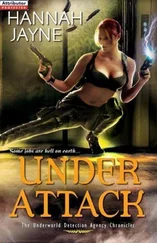As they approached the docks they joined ‘an endless queue of appliances, all steadily moving and being detailed to their exact positions. Bombs were falling fast and heavy. We did a great deal of ducking … and my heart was in my mouth. The journey towards a blitz, like most apprehension, can be the worst part of it … Eventually we came to a standstill at the wharf where we were to spend the endless night. Everything seemed to be on fire in every direction, even some barrage balloons in the sky [winched up in the hope that low-flying enemy aircraft would become entangled in their metal ropes] were exploding. The cinder-laden smoke which drifted all around made us think of the destruction of Pompeii.’
Cyril Demarne, a regular fireman stationed at Abbey Road School in West Ham in London’s East End, was in the school yard when soon after the alert had sounded he heard ‘the drone of approaching aircraft rapidly swelling to a roar. Suddenly squadrons of bombers appeared all over the eastern sky, flying very high and escorted by hundreds of fighter planes glinting in the sunlight as they weaved and turned over the bomber formation … I dived for the safety of the Control Room, where calls for assistance were already flowing in from Dagenham, Barking, East and West Ham. The electricity mains were damaged in the first minutes of the raid and [as it grew dark] the fire control had to operate by the light of candles set in jam jars.’
‘I was frightened out of my life. Bombs coming down, screaming – the row they make, it’s a sort of warning saying, “Look out, here comes death.” And when they landed they went off with a terrific roar – not one but dozens of them – bang, bang, bang, bang, all the time, everywhere. And then there was the drone of aircraft … the noise was the sort of thing that got to me. It … dulled the senses … you couldn’t think clearly.’
‘That day stands out like a flaming wound in my memory,’ wrote Bernard Kops, a London schoolboy who would grow up to be a playwright.
Imagine a ground floor flat [in Stepney Green Buildings], crowded with hysterical women, crying babies and great crashes in the sky and the whole earth shaking. Someone rushed in, ‘The docks are alight. All the docks are alight.’ I could smell burning … The men started to play cards and the women tried a little sing song, singing ‘I saw the old homestead and faces I loved’ or ‘Don’t go down the mine, Daddy, dreams very often come true’ or ‘Yiddle mit his fiddle’. But every so often twenty women’s fists shook at the ceiling cursing the explosions, Germany, Hitler … Yet cursing got my mother and my aunts through those early days. I sat under the table where above the men were playing cards, screwing my eyes up and covering my ears, counting explosions.
‘We’re all gonna get killed, we’re finished,’ one of my aunts became hysterical.
‘Churchill will get us through, he’s a friend of the Yiddisher people.’ With these words she was soothed.
Len Jones, an eighteen-year-old Poplar resident, went outside when he heard the first German planes overhead. ‘It was very exciting because the first formations were coming over without any bombs dropping, but very, very majestic, terrific. And I had no thought that they were actual bombers. Then … the bombs began to fall, and shrapnel was going along King Street, dancing off the cobbles. Then the real impetus came … the suction and the compression from the high-explosive bombs just pushed you and pulled you, and the whole of the atmosphere was turbulating so hard that, after an explosion of a nearby bomb, you could actually feel your eyeballs being [almost] sucked out … and the suction was so vast, it ripped my shirt away, and ripped my trousers. Then I couldn’t get my breath, the smoke was like acid and everything round me was black and yellow. And these bombers kept on and on, the whole road was moving, rising and falling.’
By 6.30 the planes – Dornier and Heinkel bombers escorted by Messerschmitt fighters – had turned back and wheeled across the Kent countryside, flying over Romney Marsh and back across the Channel to their bases in France. The All Clear sounded, and East Enders emerged from their homes and public shelters and peered about them at the raging fires, the broken glass, the destroyed and damaged houses, debris everywhere, a pall of greasy black smoke enveloping the scene as firemen desperately tackled massive fires with tangles of hoses snaking across the roads and water sloshing into the gutters.
But this was just a lull. ‘Black Saturday’ would set the pattern for the next eight harrowing months. First the Luftwaffe would drop showers of incendiary bombs that would start fires. The blazes would both act as a beacon to guide the subsequent formations of bombers with their loads of highexplosive (HE) bombs to their target, and also occupy the Civil Defence services – fire, rescue, medical – so they would not be standing by ready to engage immediately with the crisis when the heavy bombs began to fall.
Just over two hours later, at 8.30 p.m., the siren wailed again. This time the raid would continue relentlessly until dawn, adding further chaos and devastation to the already stricken East End, and widening out to other parts of London. Chelsea and Victoria were hit that night too, but it was the area of the tidal basin around the docks – the Isle of Dogs, Silvertown and Rotherhithe – that took the brunt of the devastation. Bermondsey, Canning Town, Woolwich, Deptford – fanning out to West Ham, Plaistow, Bow, Whitechapel, Stepney and Poplar – also suffered heavy loads of bombs.
Squadrons of Heinkels and Dorniers – 250 in all – came in waves to drop high-explosive bombs onto the still-blazing wharves, the ruined houses, the cratered streets, the terrified east Londoners. AFS despatch riders on motorcycles made their way through the chaos and rubble to report the immensity of the situation to local fire controls. Columns of fire engines raced east, their bells clanging, men called on duty fastening their helmets and doing up their jackets as the engines sped to answer the urgent calls from the East End. When they arrived there was often nobody in charge to be found, and men were simply deployed to fight the nearest fire to hand. Five hundred engines converged on West Ham alone after a request to the London Regional Fire Control Headquarters at Lambeth, where the map of London pinned on the wall, usually dense with markers indicating the availability of fire engines, was ominously clear. There were already nine fires designated as ‘conflagrations’ (when fires coalesce, burn out of control and spread rapidly), nineteen requiring thirty pumps, forty needing ten, and over a thousand smaller incidents.
By now Surrey Docks was a square mile of fire. The paint on the fireboats attempting to douse the flames blistered in the intense heat, as cranes buckled and crashed into the river. At the Royal Arsenal in Woolwich many of the buildings on fire contained live ammunition and highly flammable nitroglycerine. Water mains had been damaged, and when the hydrants ran dry water had to be pumped from the Thames, reservoirs, even ponds and ditches. At Woolwich a fireman aboard one of six fireboats which had been ordered to return to London from a fire at the Shell-Mex Thameshaven oil refinery on Canvey Island at the mouth of the Thames, its 2,000-ton-capacity tanks ablaze after a bomb attack on 5 September, saw ‘an extraordinary spectacle. There was nothing but fire ahead, apparently stretching right across the river and burning on both of its banks. We seemed to be entering a tunnel of fire – no break in it anywhere. All the usual landmarks were obliterated by walls of flame. Burning barges drifted past. For many hours no contact with the shore was possible. We did what we could where we could. At one time we were just getting into position to fight a fire in a large warehouse when the whole of the riverside front collapsed into the water with a mighty splash. The contents of the building, bags of beans, pouring into the river made a sound like a tropical rain storm. Soon after, we were surprised to see two firemen and three firewomen picking their way along the shore in the direction of Southwark Bridge; they told us they had been cut off in a control room for several hours’ by the fires.
Читать дальше












